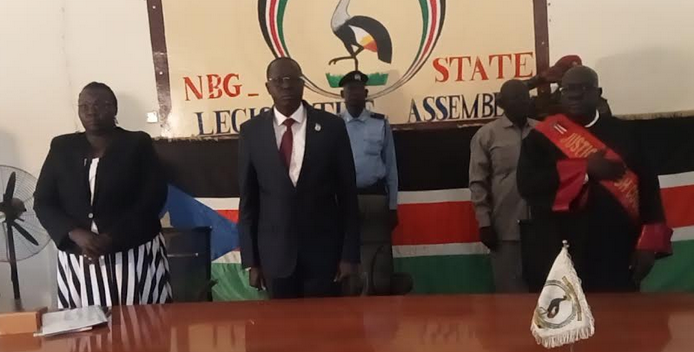The Northern Bahr el Ghazal State Legislative Assembly on Monday resumed business after a five months hiatus according to the state’s minister of parliamentary affairs.
Minister William Lual Lual said the official reopening of the assembly’s second session was graced by State Governor Tong Akeen Ngor and other dignitaries.
“The assembly resumed the business on 16 January after a long holiday which lasted for more than five months,” he said.
30 members of parliament out of the 100 did not turn up for the event due to health and other personal reasons, the official said.
According to Minister Lual, the second session is going to be a busy one for the lawmakers.
“This session is going to be tough because there are a lot of responsibilities awaiting the parliamentarians,” he said.
Meanwhile, a civil activist turned parliamentarian, Treza Achol Bilwan, said they will discuss issues to do with the provision of water, schools, hospitals, and roads.
“Of course, we the lawmakers discuss on behalf of the people because they need the provision of water, schools, and hospitals,” she said. “We are also going to review the skyrocketing commodity prices in the market.”
On his part, William Wel Deng who represents the Malual North Constituency in Aweil North County said poor roads, hunger and diseases are the top problems his area is facing.
“In my constituency and the whole Aweil North County, we have a lot of challenges and the first of them is that Aweil North-Aweil road is impassable and a lot of patients usually die while being transported to Aweil via Nyamlel,” said Wel. “The second challenge is hunger because the floods have affected crops last year and there is no food. The other challenge is that there are a lot of diseases which require modern health facilities and delivery of drugs.”




